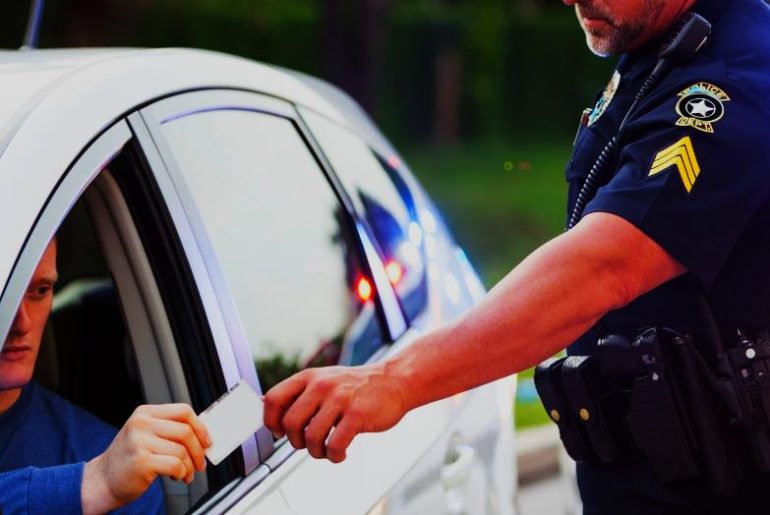Introduction:
In DUI (Driving Under the Influence) cases, the police report stands as a critical document. It records in detail the events and observations leading up to a DUI arrest, offering a glimpse into the potential evidence that could be pivotal in court. This report is not just a simple narrative; it’s a foundational piece that shapes the trajectory of both the prosecution and defense strategies in a DUI case.
For anyone involved in such cases – whether a member of the general public facing charges, legal professionals, or even those just seeking to understand the complexities of DUI law – grasping the importance of the police report is essential. It serves as a key element in the legal proceedings of DUI charges, influencing decisions and potentially the outcome of the case.
These reports provide a framework for understanding the circumstances surrounding the DUI incident. From documenting the reason for the traffic stop to the results of field sobriety tests and the officer’s overall observations, the police report lays the groundwork for what can be expected during the legal process. Its contents can sway the course of a case, underscoring the need for meticulous examination and interpretation by both sides of the legal aisle.
Understanding DUI Police Reports
Role of DUI Police Reports
A DUI police report is a vital document in the legal process of a DUI case. Crafted by the arresting officer, it serves as an official record that documents the entire incident. This report is instrumental because it captures key aspects of the DUI event:
- Observations and Conduct: It outlines the officer’s observations during the incident, detailing the behavior and conduct of the driver. This might include descriptions of the driver’s speech, demeanor, and any signs of impairment.
- Field Sobriety and Breathalyzer Tests: The report also includes results from field sobriety tests and any breathalyzer tests conducted. These results are crucial as they provide empirical evidence regarding the driver’s level of impairment.
Common Contents of DUI Police Reports
The typical DUI police report contains several essential elements:
- Reason for Traffic Stop: This includes the officer’s rationale for initiating the stop, often based on observations such as erratic driving or specific traffic violations.
- Officer’s Observations: Detailed account of any signs of intoxication in the driver’s behavior, speech, or appearance.
- Test Results: Documentation of the outcomes of field sobriety tests and breath or blood tests, which are pivotal in establishing the level of impairment.
Types of Errors in Police Reports and Their Impact
Common Errors in DUI Police Reports
In these reports, errors can vary widely but significantly impact the case:
- Incorrect Documentation: This might involve errors in recording the results or administration of field sobriety tests and breath or blood tests.
- Observational Mistakes: Inaccuracies in describing the driver’s behavior or physical symptoms of intoxication, which are often subjective.
Impact of Errors on the Prosecution’s Case
These errors can undermine the prosecution’s case by casting doubt on the evidence:
- Weakening the Case: Inaccuracies or inconsistencies in the police report can challenge the validity of the DUI charge, potentially leading to a favorable outcome for the defendant.
- Grounds for Legal Challenges: Inconsistencies or incorrect details provide a basis for legal challenges, questioning the reliability and accuracy of the evidence presented.
Legal Implications of Police Report Errors
Evidence Suppression and Case Dismissal
- Errors in DUI police reports can lead to significant legal outcomes, such as the suppression of evidence, dismissal, or reduction of DUI charges.
- Key errors include the absence of probable cause for the traffic stop, which is foundational for the legality of the arrest. If an officer lacks a legitimate reason for stopping a driver, it can invalidate subsequent evidence gathered during the stop.
- Misinterpretation or incorrect documentation of field sobriety tests can also affect a case. Flaws in how these tests were conducted or reported can lead to questions about the reliability of the evidence, potentially leading to its suppression.
Building a Defense Strategy
Using Police Report Errors
- Defendants can strategically use errors in police reports to bolster their defense.
- The accuracy and completeness of the police report are critical. Discrepancies, such as inconsistencies in the officer’s narrative or factual errors, can be leveraged to challenge the prosecution’s case.
The Role of Legal Representation
Consultation with a DUI Attorney
- It’s crucial to consult a DUI attorney to analyze the police report for beneficial errors.
- An attorney can adeptly challenge inconsistencies and procedural mistakes in court, using their expertise to scrutinize the details of the report and the methods used during the arrest.
Case Studies and Examples
Examples of Police Report Errors Influencing Outcomes
- Case studies or hypothetical scenarios can illustrate the impact of police report errors. For instance, a scenario where a DUI charge was dismissed due to the lack of probable cause for the traffic stop, or a case where evidence was suppressed due to improperly conducted field sobriety tests.
- These examples highlight the potential for police report errors to significantly alter the outcome of DUI cases.
Conclusion
In conclusion, errors in DUI police reports can have profound implications on the outcome of a case. By understanding these errors and their legal implications, and with the support of skilled legal representation, defendants can develop effective defense strategies. These strategies can potentially lead to suppressed evidence, reduced charges, or even case dismissal. The article emphasizes the importance of meticulous analysis of the police report and strategic legal intervention in navigating DUI charges.
